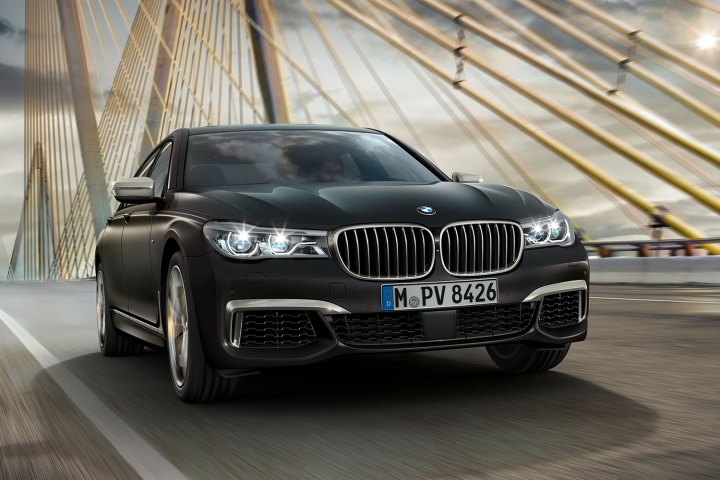
The new engine retains the outgoing unit’s 3.0-liter displacement and straight-six configuration. It uses two small turbos that quickly spool up at low rpm to reduce turbo lag, and two bigger units that gradually take over as the revs rise. All told, BMW’s new turbodiesel makes 394 horsepower from 4,000 to 4,400 rpm and a solid 561 pound-feet of torque from 2,000 to 3,000 rpm. The company explains the six could easily generate a lot more torque, but its output is limited by the ZF-sourced eight-speed automatic transmission that it’s bolted to.
The engine will make its debut under the hood of the 750d xDrive. The all-wheel drive super sedan sprints from zero to 60 mph in about four and a half seconds, a figure that’s nearly on par with the gasoline-electric i8 sports car, and it goes on to a top speed that’s electronically limited to 155 mph. While fuel economy figures aren’t available yet, BMW expects the 750d will burn about five percent less fuel than its predecessor.
The BMW 750d is scheduled to arrive in European showrooms in the coming months, though how much it will cost is anyone’s guess. The quad-turbo engine will also be offered in high-performance variants of the X5, the X6, the upcoming X7, and even the next generation of the 5 Series that will make its debut in the fall at the Paris Auto Show.
Read more: BMW’s no-compromise 740e hybrid hits 60 mph in 5.6 seconds, yet it returns 112 mpg
Sorry, diesel fans. BMW remains committed to selling diesels in the United States, but at this point it doesn’t sound like the quad-turbocharged oil-burner has been earmarked for our market.



